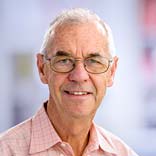The Women’s Health Initiative (WHI) launched in 1991 with a $625 million grant from the National Heart, Lung, and Blood Institute, one of the National Institutes of Health. As one of the largest U.S. prevention studies of its kind, the WHI is an ethnically and geographically diverse study of women. It was designed to address risk factors for cardiovascular disease, cancer and osteoporosis — the most frequent causes of death, disability and poor quality of life in postmenopausal women.
At its inception, the WHI consisted of an observational study and clinical trials, with over 161,000 women enrolled at 40 prestigious research centers nationwide. The initial trials tested the effects of postmenopausal hormone therapy, a low-fat diet, and calcium and vitamin D supplements on risk of heart disease, fractures, breast cancer and colorectal cancer.
Since then, WHI investigators, their colleagues and other independent investigators have leveraged program resources to initiate nearly 300 separately funded research projects. The massive WHI database and biospecimen repository is available to all researchers. Scientists have published more than 1800 papers using WHI data.
Fred Hutch serves as the program’s coordinating hub, led by Dr. Garnet Anderson, along with Drs. Ross Prentice and Charles Kooperberg.
$140
145K
12,600
161K
WHI Funding Leads to National Benefits
The NHLBI awarded Fred Hutch additional funding in 2005, 2010 and 2015 to continue study coordination. In these extension phases, the WHI refined main clinical trial findings, identified factors associated with healthy aging and continue to search for more ways to improve women’s health.
The funding supports the WHI by:
- Providing a research platform well-positioned to address the health concerns of our aging population
- Preserving and furthering decades of progress in studying and improving women’s health
- Creating opportunities to demonstrate how improved care reduces long-term health care costs
Read the letter U.S. Senators sent to the NHLBI and NIH, supporting their continued funding of the WHI.
Key Findings for WHI Studies at the Hutch
WHI studies cover a variety of factors that contribute women’s overall health. Our research looks at multiple forms of cancer, bone health, heart health, and other influences on the quality of life for women in middle age and beyond.

Dr. Garnet Anderson
Dr. Garnet Anderson led a study that linked estrogen-only therapy after a hysterectomy with a reduced risk of developing breast cancer.

Dr. Ross Prentice
Dr. Ross Prentice and his team determined a low-fat diet may reduce the risk of ovarian cancer, as well as breast cancer.

Dr. Charles Kooperberg
Dr. Charles Kooperberg and his colleagues analyzed the genetic data of WHI participants and identified two new areas of the genome associated with body height in African American women.

Dr. Marian Neuhouser
Dr. Marian Neuhouser and her team determined that multivitamins have no effect on the risk of cancer or heart disease in postmenopausal women.

